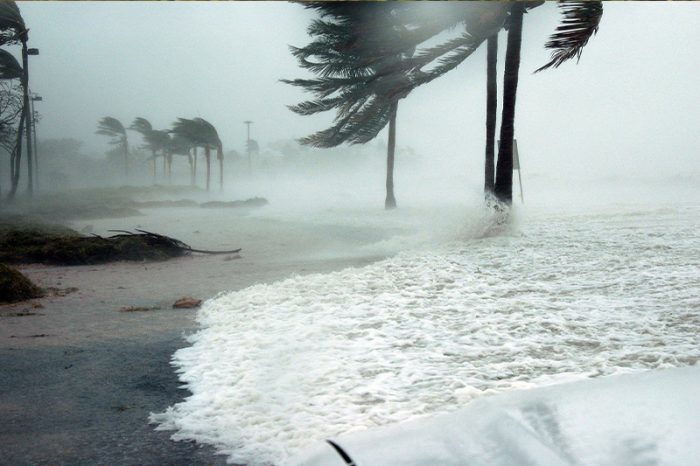In the northern Atlantic Ocean, hurricane season begins on June 1st and ends on November 30th. The most dangerous month of the season is September when historically the average of mature hurricanes peaks. If you have lived in Florida long enough, then you know the power that lies within a hurricane. According to NASA, “hurricanes are the most violent storms on earth.” Their winds can range from 74 mph to 157 mph or more. Winds that strong are catastrophic and we never know exactly when such a storm can develop, so we must always be prepared.
How to prepare for Hurricane Season:
- Plan an evacuation route (ahead of time)
Search for local shelters and your state’s Department of Transportation or Office of Emergency Management website to find evacuation routes. - Sign up for local alerts
Having alerts about the closeness of the hurricane to your area can benefit for evacuation purposes and preparing for the next steps. - Stock up on non-perishables
Since hurricanes cause power outages for weeks, it’s difficult to keep perishable items long enough to sustain the days after. Non-perishables are an important food source that last long after the hurricane hits land. - Stock up on emergency supplies
A few important emergency items are: first aid kit and medicine to last weeks after the hurricane, flashlights and extra batteries for when the power goes out, protective gear and blankets should the situation be detrimental and you need to leave your home, and hygienic supplies to last a few weeks. - Collect and safeguard critical personal information
Should an emergency arise, it’s important to have all personal information easily accessible including your birth certificate, insurance card, health information and any others relevant to your needs - Keep an inventory of your personal property
A hurricane can, unfortunately, blow wind and water into your house at a moment’s notice and when that happens, it’s important to know what you owned and what was lost or damaged - Review insurance policies
Understanding your insurance and what is included in case a hurricane damages your house, car or other personal property is a good idea so you are ready should something happen - Take steps to protect your home
Homes take on lots of damage during hurricanes so it is important to seal any wall openings, anchor fuel tanks, install sewer backflow valves, board up windows or purchase hurricane shutters, cut weak branches from trees, have (at minimum} three hinges and a deadbolt lock on your front door and make sure your sliding doors are made of tempered glass.
Planning and preparing for a hurricane can make the difference between life and death, it can also save you $1000’s in water and wind damage when you take action to protect your property. Always remember that if authorities advise your community to leave the area, always leave. Do not stay behind even if you know people who are. If you cannot leave then stay indoors, away from windows and glass doors. Also, remember to never use a generator or charcoal-burning device inside.
To download a hurricane preparedness list or if you would like to find more resources visit: How to Prepare for a Hurricane or if you would like to find more resources visit ready.gov/prepare.

